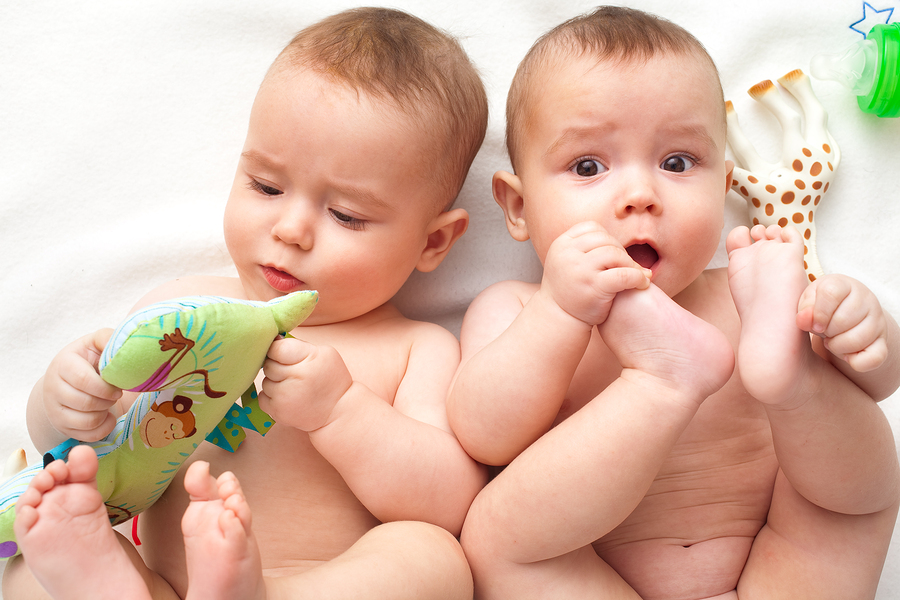- Make It Yourself Lavender Heart-Shaped Bath Bombs!
- 20 Things You Never Knew About “Down There”
- 12 Best Foods For Those Suffering From Arthritis Pain
- 12 Personal Hygiene Mistakes Almost Everyone Makes (Mom Never Told You About #4!)
- 15 Medicinal Plants And Herbs From The Cherokee People
- 12 Mind-Blowing Benefits Of Drinking Coconut Water During Pregnancy
- 12 Outstanding Winter Foods That Won’t Fatten You Up Like A Christmas Turkey
Older Mothers More Likely To Have Twins? Some Interesting Facts About Older Parents

Photo credit: bigstockphoto.com
If you’re at all attuned to what’s happing in pop culture, you may have heard that George Clooney and his wife Amal are expecting twins. While hearing that twins are on the way is a noteworthy occurrence, this case stood out for two reasons: 1) No one ever thought George Clooney would settle down and become a father, and 2) the ages of the expecting parents. Clooney is 55 years old and Amal is 39, and they will both be first-time parents.
Both of them are much older than the average people who have children, especially for the first time. To put this in perspective, the average age for a first-time mother in the United States is 26.3, while the average age for fathers expecting their first child is 25.4, according to data from the Center for Disease Control, or CDC (data was collected in between 2011 and 2014).
While George and Amal might be an unusual case, a general trend of both men and women waiting until they’re older to have children has emerged. It’s having some interesting effects on the health of both the parents and children, and implications for the future.
Interesting Facts About Older Fathers and Their Children
Children of older fathers may be at higher risk for psychiatric illness later in life. According to data from a Swedish study conducted in 2014, there may be a connection between paternal age and an increased likelihood of the child developing some form of mental illness. This study, published in JAMA Psychiatry, found that children who had fathers that were 45 years or older at the time of their birth were 24 times as likely to be diagnosed with bipolar disorder later in life. They were also 13 times as likely to develop attention deficit hyperactivity disorder, or ADHD.
Interestingly, the researchers also found that children the children in this study were 3 ½ times as likely to end up developing autism, an atypical neurological condition.
The currently accepted reason for why these conditions may be more likely is because that as men get older, there’s an increase in the number of genetic mutations in their sperm cells. Now, this isn’t any reason to panic if you’re an older guy, as the odds of any of this occurring in absolute terms is still quite low, but this data is something to be aware of.
However, it’s not all bad news for older dads; it appears that kids born to older dads might live longer. A study published in Proceedings of the National Academy of Sciences in 2012 found that these children have longer telomeres on the ends of their chromosomes. Telomeres are repetitive nucleotide sequences found at the tips of chromosomes, and they play a key role in cell division. Research has found that telomeres which are longer in length are linked to a longer lifespan.
Continue to Page 2

Photo credit: bigstock.com
The Age of the Mother Might Be Even More Influential
Studies have shown that the risk of health problems for both the mother and the child increases once the mother is past the age of 35. Children born to mothers past this age have a significantly higher risk of being diagnosed with Down’s Syndrome, or other conditions caused by chromosomal defects, according to data from the American Congress of Obstetricians and Gynecologists. As with the psychological and neurological conditions mentioned above for children born to older fathers, the risk of this happening isn’t super high, but it’s something to keep in mind.
There are also some interesting scientific findings regarding the health and lifespan for mothers who have children at later age. A 2014 study found that women who gave birth to their last child after they were 33 years old were almost twice as likely to live to the age of 95 years old or older. A study published in the American Journal of Epidemiology found that women who gave birth to their final child in their 30s or 40s were also less likely to develop endometrial cancer (a type of cancer which occurs in the lining of the uterus).
In the cases of both the lower cancer risk and increased lifespan, it appears to be a matter of correlation rather than causation. Having babies at a later-than-average age didn’t cause the women to live longer or lower their risks of cancer. Rather, if these women were healthy enough have children at a later age, it appears their overall good health correlated with a longer life and a lower risk of cancer as well.
READ ALSO: Essential Tips For Parents Of A Child With ADHD
No matter what your age might be, taking care of your own health, fitness and nutrition increases the odds that your children will be healthy as well.
References:

































